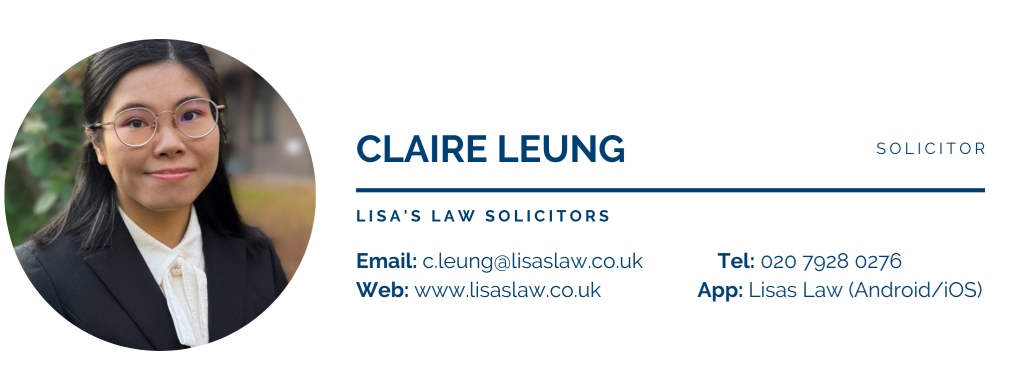The Leasehold and Freehold Reform Act 2024 received royal assent on 24 May 2024. While most discussion about the 2024 Act relates to the ban on the sale of new leasehold houses and the lease extensions, this article aims to talk about new requirements and limitations in relation to rentcharges under the 2024 Act, which will come into force on 24 July 2024.
What is a rentcharge?
As defined in section 1 of the Rentcharges Act 1977, a rentcharge means an annual or other periodic sum charged on or issuing out of land, that is not rent reserved by a lease and is not payable by way of interest.
Rentcharges are usually paid by freeholders to a third party who has no other interest in the property. Most rentcharges originated in the late 19th and early 20th century when landowners sold their land for development but would retain a legal interest in the land and charge an annual fee.
Current law relating to rentcharges
Under the Rentcharges Act 1977, no new rentcharges can be created since 22 August 1977 except for:
- estate rentcharges;
- rentcharges created in relation to certain family trust arrangements
- rentcharges created under statutory acts in connection with the execution of works or commutation of such works obligations and
- finally, rentcharges created by or in accordance with a court order.
The 1977 Act also provides historic rentcharges to be extinguished on the later of 22 July 2037 or the expiry of 60 years from the first payment date of the rentcharge. However, rentcharges that can be created under the 1977 Act remain enforceable after 2037. For example, estate rentcharge can still apply to certain new build developments where the freehold homeowners are obliged to pay the estate rentcharge for maintaining or repairing communal areas.
If the homeowner fails to pay the rentcharge or any part of it for 40 days after it is due, statutory remedies are available to the rentcharge owner under section 121 of the Law of Property Act 1925:
- Section 121(3) provides that the rentcharge owner has right to enter into possession of the property, and take the income from it until all arrears together with all costs and expenses are fully paid;
- Section 121(4) provides that the rentcharge owner may grant a lease of the property to a trustee who must try to raise enough to pay the arrears together with the costs and expenses arising from non-payment of rentcharges.
The rentcharge owner does not need to make any legal demand for unpaid rentcharges before exercising these remedies. This creates problems due to the unforeseen consequence if the homeowner fails to comply with the rentcharge provisions. Mortgage lenders are reluctant to lend against properties subject to estate rentcharges unless the rentcharge deed includes a provision requiring the rentcharge owner to give a minimum 40 days’ notice to the lender before taking the enforcement action or excludes the statutory remedies under section 121 of the 1925 Act.
Changes under the Leasehold and Freehold Reform Act 2024
Under section 113 of the 2024 Act, the rentcharge owner cannot exercise their enforcement under section 121 of the Law of Property Act 1925 unless the rentcharge owner has served the homeowner with a 30 days’ notice demanding payment of the arrears and such notice complies with the requirements set out in the provision. For instance, the demand for payment must set out the following details:
- the name of the rent owner;
- the address of the rent owner;
- the amount of the rentcharge arrears;
- how that amount has been calculated; and
- details of how to pay that amount.
Moreover, the rentcharge owner no longer has any of remedies for recovering and compelling payment of unpaid rentcharge on and after 27 November 2023. The rights to take possession / to grant a lease have been removed.
Nonetheless, the above changes only apply to “regulated” rentcharges which could not be created in accordance with section 2 of the Rentcharges Act 1977 i.e. historic rentcharges. The changes do not extend to estate rentcharges. The homeowner subject to estate rentcharge and the mortgage lender still have to deal with draconian rights available to the rentcharge owner. Therefore, the homeowner should still be aware of how rentcharge operates and the consequences if they fail to comply with rentcharge provisions.
Have questions? Get in touch today!
Call us on 020 7928 0276, phone calls are operating as usual and we will be taking calls from 9:30am to 6:00pm.
Email us on info@lisaslaw.co.uk.
Use the Ask Lisa function on our website. Simply enter your details and leave a message, we will get right back to you: https://lisaslaw.co.uk/ask-question/
For more updates, follow us on our social media platforms! You can find them all on our Linktree right here.






